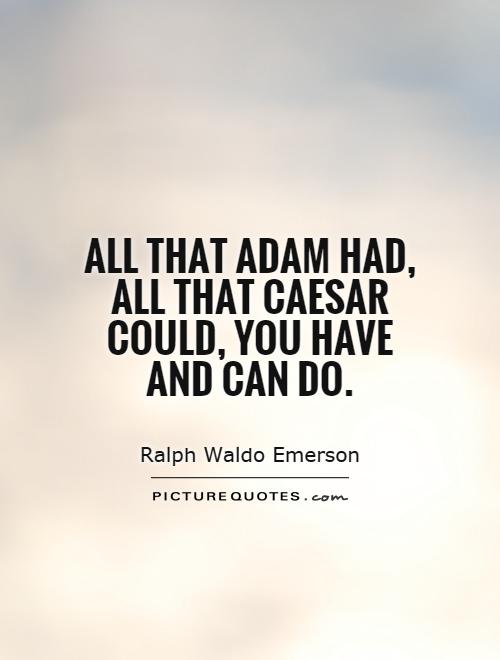All that Adam had, all that Caesar could, you have and can do

All that Adam had, all that Caesar could, you have and can do
Ralph Waldo Emerson, a prominent American essayist, poet, and philosopher, is known for his transcendentalist beliefs and his emphasis on self-reliance and individualism. One of his most famous quotes, "All that Adam had, all that Caesar could, you have and can do," encapsulates his belief in the inherent power and potential of every individual.Emerson believed that each person possesses the same fundamental abilities and capabilities as the great figures of history. Adam, the first man in the Bible, represents the purity and innocence of humanity before the fall. Caesar, on the other hand, symbolizes power, authority, and leadership. By referencing these two figures, Emerson is suggesting that we all have the same potential for greatness within us.
Emerson's philosophy of self-reliance is closely tied to this idea. He believed that individuals should trust in their own instincts and abilities, rather than relying on external sources of authority or validation. By recognizing and harnessing their own inner strength and potential, individuals can achieve great things and make a positive impact on the world.
Emerson's message is empowering and inspiring. It encourages individuals to believe in themselves and their own abilities, rather than feeling limited by their circumstances or comparing themselves to others. By recognizing the inherent power and potential within themselves, individuals can overcome obstacles, pursue their passions, and create a life of meaning and fulfillment.












 Friendship Quotes
Friendship Quotes Love Quotes
Love Quotes Life Quotes
Life Quotes Funny Quotes
Funny Quotes Motivational Quotes
Motivational Quotes Inspirational Quotes
Inspirational Quotes